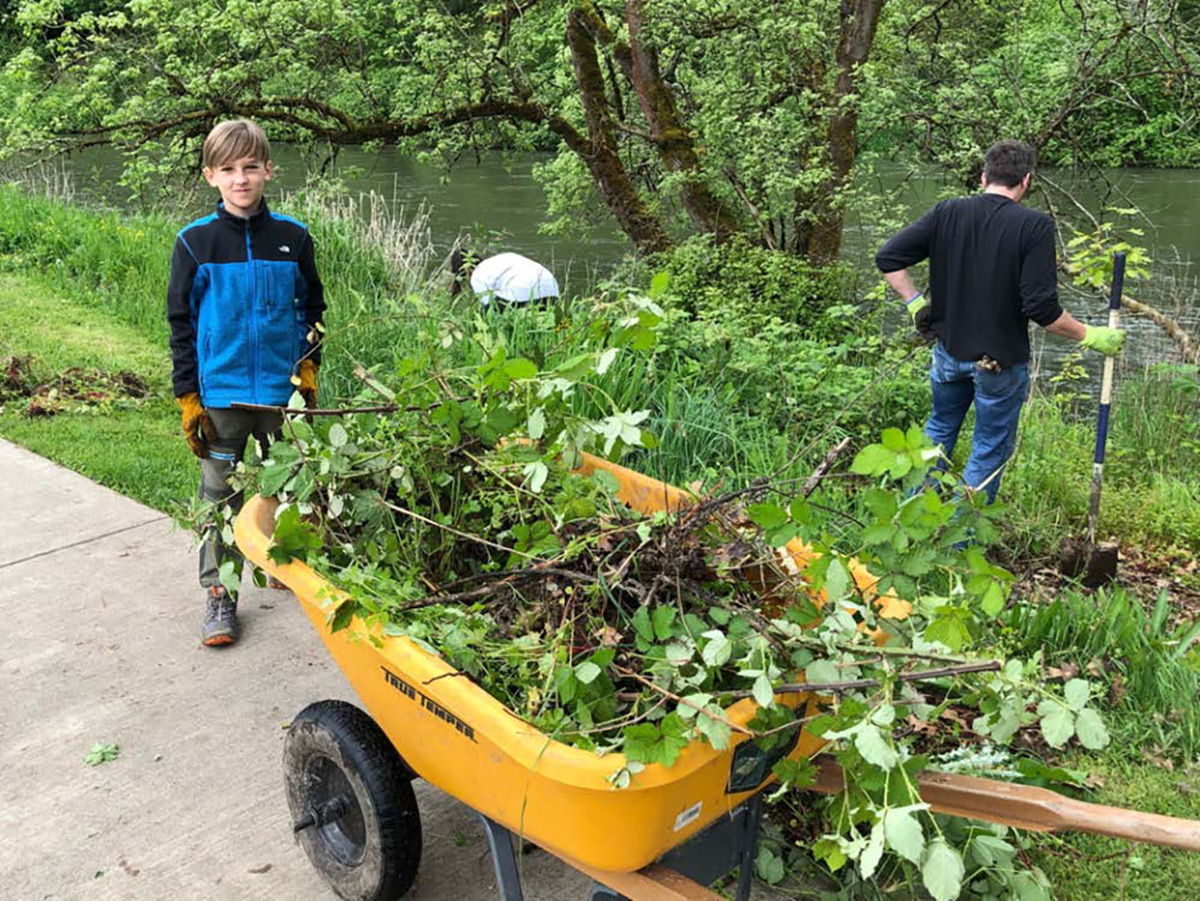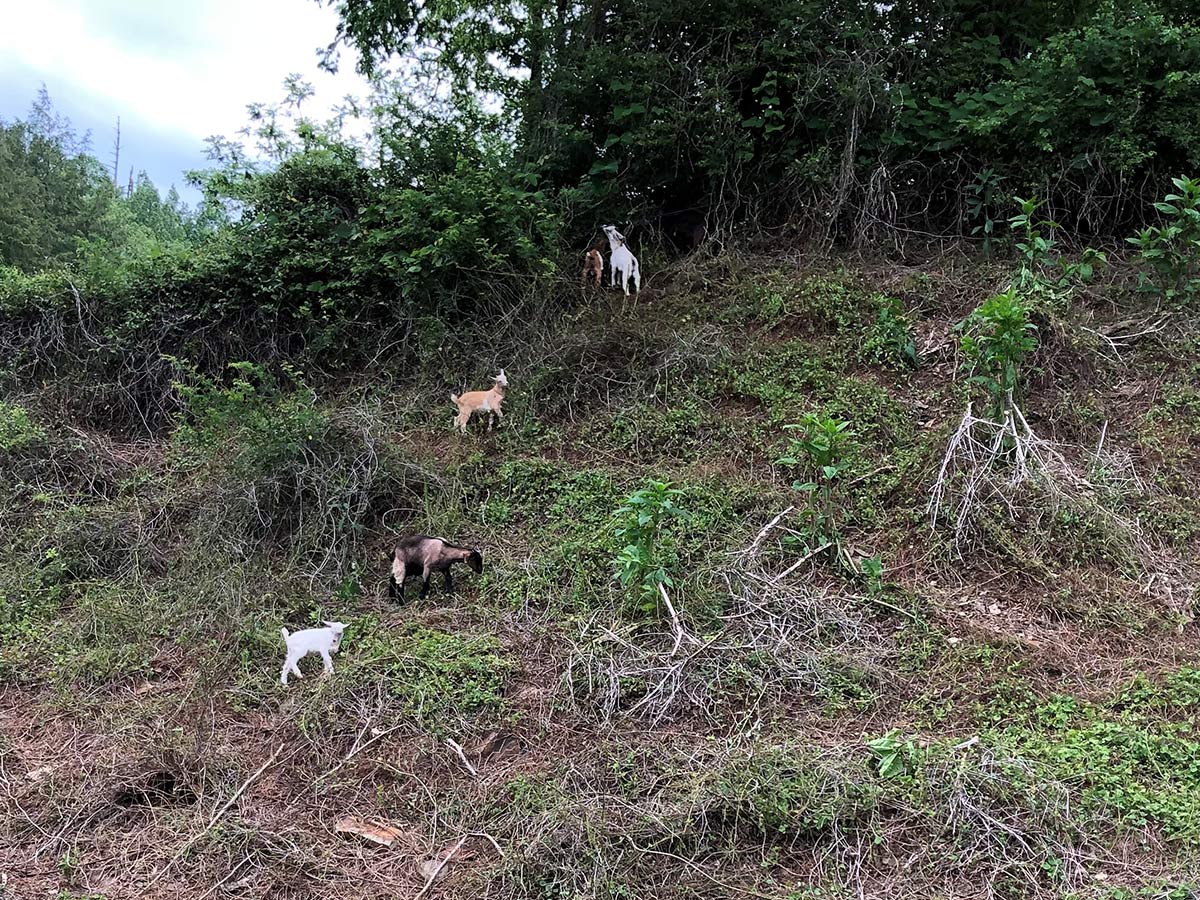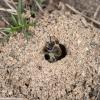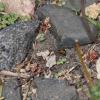Throughout Pollinator Week, we’ve learned how to keep bees, butterflies, and other beneficial insects safe from pesticides at home. Yet what about all the other space out there?
Today, we’ll meet eight communities where individuals have banded together to make entire neighborhoods safe for pollinators, all affiliates of the Xerces Society’s Bee City USA and Bee Campus USA initiatives. These actions are rooted in ecologically-based integrated pest management (IPM), and many of them can be adopted by people in other communities, large or small.
Redefine aesthetics to save the bees
42 Bee City and Bee Campus affiliates have eliminated pesticide uses that are solely to maintain aesthetics on city or campus grounds.
Redding, CA has decided to not spray to control weeds in order to maintain a manicured aesthetic of turf in their parks. Instead, they allow clover and other pollinator-friendly vegetation to grow, and don’t use pesticides for pest control anywhere in parks except on athletic fields.
Middleton, MD does not use pesticides to maintain the aesthetics on any town-owned property. In fact, the only pesticides they’ve used at all in recent years have been to try to remove stubborn invasive thistles in one roundabout.

Think outside the box on weed management
Skipping herbicides doesn’t mean the weeds need to stay. These communities found creative ways to get rid of troublesome plants.
When Pittman Center, TN was overrun by a dense monoculture of invasive kudzu, they not only lost their landscaping, but the highly flammable plant posed a fire risk to the community. To avoid using toxic herbicides, they successfully deployed a herd of goats that ate the kudzu, allowing native plants to grow in the newly cleared area.
At the University of Wisconsin, Stevens Point, the grounds crew has reduced their pesticide use by 90% over the past several years. They hire a student weeding staff instead of using pesticides in flower beds, and recently purchased a steam weeder that “cooks” weeds. Unlike a flame weeder, this doesn’t fry mulch, and leaves behind the plants to improve soil health as they decompose.
For more ideas, see Smarter Pest Management: Pollinator Protection for Cities and Campuses.

Get smart about mosquito management
Pesticide sprays targeting adult mosquitos (often pyrethroids) tend to be toxic and pose a risk to almost all insect life, not just mosquitoes. What’s more, sprays that target adults don’t work well for mosquito management long term.
The community of Port Barrington, IL is surrounded by water, making mosquitoes one of their largest pest-control challenges. By using integrated pesticide management (IPM), they have moved away from spraying adults and are instead monitoring larval mosquitoes, establishing thresholds for action, and using larvicides when needed. Port Barrington works to let residents know about the importance of eliminating standing water.
Volunteers with “Beecatur,” Decatur, Georgia’s Bee City group, have created a fantastic no-spray campaign. They focus on public education and community outreach, as well as local policy work to reduce residential adult mosquito spraying in their community.
Your community can make a plan, too, with our publications, Supporting Ecologically Sound Mosquito Management and How to Help Your Community Create an Effective Mosquito Management Plan.

Recruit the neighbors
Outreach and education are an important underpinning of any community-wide pesticide-reduction program — it’s not simply about changing policy. You can make a difference in your own yard, but scaling up to the community level by getting neighbors and businesses involved can provide a larger area of connected, high-quality habitat. It’s also the best way to deal with mobile pests like mosquitoes
In Decatur, volunteers use a broad suite of outreach techniques to spread their messages on pesticide reduction, including a web page with resources, tabling at events, meet-and-greets at local pollinator habitats, speaking to community groups, and creative yard signs.
Greenwood, SC acquired a grant to conduct outreach on mosquito prevention and pollinator education to schools and the broader community. Hopefully, this education reduces the need for mosquito sprays as more people are aware of practices like removing standing water at-home. They also hope to perform outreach about mosquito prevention to broader community groups.
If you are interested in creating change in your town or college, consider mobilizing your community to become a Bee City USA to solidify everyone’s commitment to protecting pollinators. Xerces Society resources are always available to help you continue making a difference at home and in your community. These are the types of efforts that can protect invertebrates and their habitats in the places we live, work, learn, and play.




